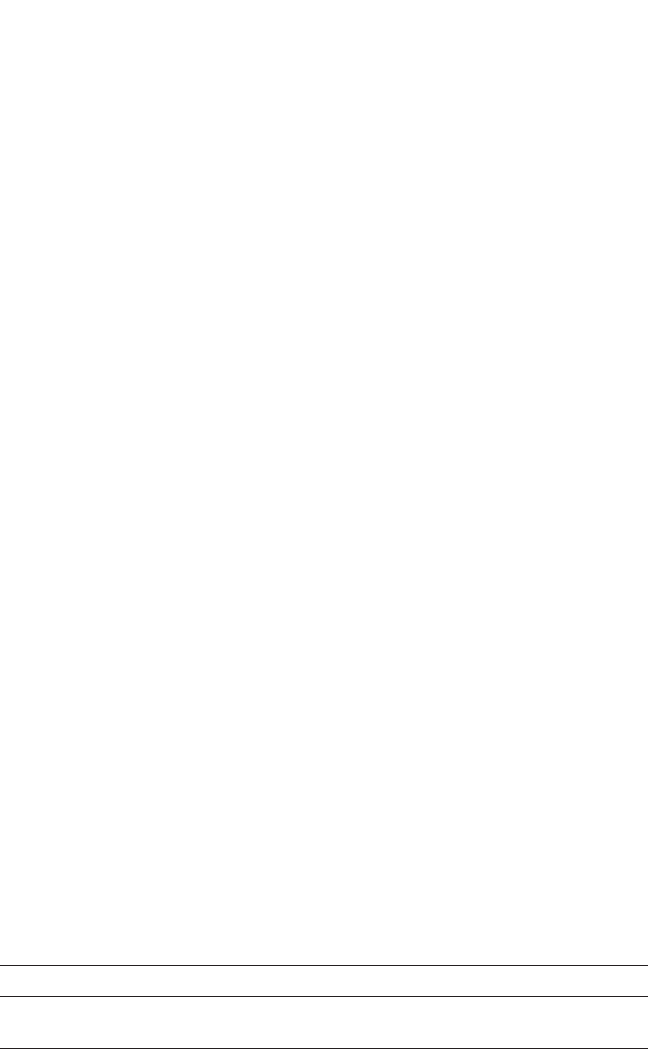Jeffries Vincent (Editor). Handbook Of Public Sociology
Подождите немного. Документ загружается.


452 Chapter 25
How does this square with Bourdieu’s fame as a public sociologist, the
most important and most distinguished public sociologist of our era?
Bourdieu defends the autonomy of the field and the accumulation of
capital within it as necessary for the development of science. The redeem-
ing feature of this science—sprung from its autonomy, liberated from the
pressures of material necessity, enabling the free play of creative capacities,
the leisured existence known as skholé—is the demystification and chal-
lenge it offers, so he claims, to the silent compulsion of symbolic domina-
tion—domination not even recognized as such. In other words, science by
its very nature is subversive. But here lies the paradox: in this Bourdieu-
sian world the dominant classes have no interest in hearing sociology’s
subversive message and the dominated classes are unable to comprehend
the message, so deeply inscribed is their habituation to domination. Apart
from critical intellectuals, therefore, it is not clear whom Bourdieu con-
sidered to be his publics. Bourdieu’s theory lagged behind his practice as
a public sociologist whose messages, especially later in his life, reached
millions of people.
Not surprisingly, then, Bourdieu was a strong advocate of an elite band
of intellectuals he dubbed as “an international of intellectuals” that would
be the “organic intellectual of humanity,” standing above humanity and
defending humanity’s interests. Bourdieu’s lofty stance corresponds all too
well with the commanding position he held at the Collège de France within
the sharply pyramidal structure of French higher education. For all his cri-
tique of Sartre, the total intellectual, he became one himself, ensconced at
the apex of the intellectual field he dissected with such acuity. In Bourdieu’s
conception public sociology is both the privilege and the obligation of
those who have accumulated scientific capital. This “traditional” public
sociology is a mediated engagement with broad, thin, passive publics and,
therefore, dependent on newsprint, magazines, radio, and television. Not
for nothing did Bourdieu unleash jeremiads against the media for distort-
ing his messages, and usurping his role as scholar and scientist.
This traditional public sociology is a far cry from the organic public
sociology that underlies many of the chapters in this book, and that drew
only contempt from Bourdieu. For here the sociologist does not pronounce
from the rafters but directly engages with publics in the trenches of society.
Organic public sociologists are more modest and less visible than the tra-
ditional public sociologist. Their relations to publics—narrower but thicker
and more active—are unmediated rather than mediated, not resting on a
vast accumulation of academic capital. To understand their place in sociol-
ogy we need to go beyond Bourdieu’s scientific field, which corresponds
to what I call professional knowledge, and examine the disciplinary field
that includes policy, public, and critical knowledges as well as professional
knowledge.

The Public Sociology Wars 453
The wars over public sociology are first struggles over the very definition
of sociology, what Bourdieu would call a classification struggle. We will
find that, with notable exceptions, those sociologists who inhabit lofty po-
sitions in the academic world are more likely to defend a narrow scientific
conception of sociology, along the lines of Bourdieu, whereas those in less
elite places are more likely to defend a broader definition of the field as a
discipline that embraces critical, policy, and public sociologies as distinct
knowledges. The extension of sociology from a scientific to a disciplinary
field brings to the fore a set of relations of domination and exploitation and
their corresponding struggles that are beyond Bourdieu’s narrow purview
of the scientific field.
The scientific field is but the summit of a hierarchical disciplinary field.
In the United States the scientific field rests on armies of teachers in state
universities and community colleges who teach excessive amounts for mod-
est compensation. More directly, research departments depend on legions
of graduate students who not only do most of the face-to-face teaching and
grading but also perform mind numbing operations of research. Together,
they make possible the scientific practice of the elite. Of these exploited
under-laborers we hear all too little in Bourdieu’s account, but they feed the
struggles over and within the broader definition of the disciplinary field.
Like Bourdieu many “professionals” want to obscure their dependence on
cheap labor by confining the definition of the field to “science,” and either
expel public sociology, as a relatively autonomous form of knowledge, or
bring it under their control, prompting many “public sociologists,” to react,
in turn, against the exclusivism of professional sociology.
Thus, my claim that the four sociologies define the elements of a poten-
tially integrated division of labor gathers enemies on all sides, but in ex-
pressing their enmity they simultaneously underline its gravitational power,
shaping struggles emanating from different locations in that division of
labor. In the very modes of its rejection, I will try to show that this fourfold
scheme maps the positions and accounts for the corresponding perspectives
that lead to the struggles of players within the field of sociology, and, argu-
ably, any other discipline. The power of a field manifests itself not only in
determining the range of orientations to sociology, what Bourdieu would
call “position-takings” and what I will call “positional perspectives,” under-
lining the link between position and perspective. Each actor also defines his
or her positional perspective in relation to the others. That is to say, each
actor works with an implicit cognitive map of the field, governing his or her
strategies with regard to the adoption or critique of positional perspectives.
Each is oriented to others as defined by their positions in the field.
The adoption of positional perspectives—hostility to public sociology,
the defense of professional sociology, the embrace of critical sociology,
and so forth—is not random, but nor is it simply founded in some abstract

454 Chapter 25
rationality (as we tend to delude ourselves as intellectuals). Rather our
positional perspectives are conditioned by and correspond to our inter-
ests as defined by the positions we hold within the academic field, and in
particular by the distribution of field-specific capital, what I call academic
capital.
2
Just as we are skeptical of the rationalizations of the people we
study, so we have to be skeptical about our own justifications, our own
folk understandings, our own logics of practice. Indeed, as Bourdieu would
say, our reflexivity is, or should be, precisely what marks us out as sociolo-
gists. My attempt here is only a preliminary sketch of such a field analysis.
It is not intended as a cynical ploy to discredit everyone but myself, but to
better comprehend the field in which we work so as to better understand
the unity that underlies our disunity, the common project obscured by the
public sociology wars.
3
WARS OF CONSERVATION
Let me begin by first summarizing the fourfold scheme that defines the
division of sociological labor. It was designed to replace tired divisions
between micro and macro, quantitative and qualitative, pure and applied,
positivist and hermeneutic, theoretical and empirical work. The fourfold
scheme is based on two questions: “knowledge for whom?” and “knowl-
edge for what?” In response to the first question we have two audiences:
academic and extra-academic. In response to the second question we have
two types of knowledge: instrumental knowledge concerned with means to
solve puzzles in our research programs (professional sociology) and to
solve problems as defined by policy makers (policy sociology), and reflexive
knowledge concerned with the ends of society, involving the interrogation
of the foundations of research programs (critical sociology) and public
discussion and dialogue about the fundamental direction of society (public
sociology). These then are my four types of knowledge-practice that is to say
ways of producing knowledge (see table 25.1). They exist in a matrix of an-
tagonism and interdependence, varying over history and among countries,
and through which individual sociologists move (or don’t move) as their
careers unfold. Of course, sociologists may combine two or more types of
sociology, and a given work of sociology may appear simultaneously in
Table 25.1. The Division of Sociological Labor
Academic Audience Extra-Academic Audience
Instrumental Knowledge PROFESSIONAL POLICY
Reflexive Knowledge CRITICAL PUBLIC

The Public Sociology Wars 455
more than one quadrant. My task here, however, is to examine the perspec-
tives toward our disciplinary division of labor as enunciated by different
players, situated differently within it.
Professional Sociology
When considering the United States we must start from the domination
of instrumental over reflexive knowledge, and, indeed, the supremacy of
the professional over the other three types of knowledge. This domina-
tion is built into the conditions of work and the system of rewards, giving
power and status to departments and individuals that have the material
and symbolic resources to prioritize research. We publicly consecrate lead-
ers whom we deem eminent in the field of research, who have had careers
of outstanding publications, and we rank departments in terms of their
reputation and/or their research output. The distribution of jobs, justified
as a meritocratic order, operates like a system of family strategies in which
graduate students are exchanged among the leading research departments.
In this way the ascendancy of professional knowledge reproduces itself
silently as a form of symbolic domination, that is domination that is not
recognized as such, or that is so taken for granted as not to be questioned.
From the narrow perspective of a self-contained professional sociology,
the challenge of public sociology is best met by silence in the hope it will
simply melt away. But it wouldn’t melt away, tempting defenders of profes-
sional sociology to enter into what we might call a “war of position” against
public sociology. The silent unrecognized compulsion of symbolic domi-
nation gave way to hegemonic strategies in which professional sociologists
present their interests as the interests of all.
The first hegemonic strategy is to argue that sociology is not ready to
go public. It is an immature science that has not produced reliable truths.
Thus, Charles Tittle, a criminologist, in an essay titled “The Arrogance of
Public Sociology,” says our knowledge is so primitive as to be dangerous. If
released into the public sphere, we can only discredit ourselves.
At the moment, though, sociologists do not have that body of reliable knowl-
edge and the public pretense that we do actually undermines any hope of
influencing society or of obtaining the support necessary for developing such
knowledge. Lay people know we have weak knowledge and in response they
accord us little credibility. We, in turn, continually undermine the little respect
we might otherwise have by trying to promote our ideas (a form of ideology)
in the guise of superior knowledge. Most of the time we actually do not know
as much as we pretend and even when there is a chance we might provide or
compile useful information, people do not trust us. (Tittle 2004:1641–1642)

456 Chapter 25
We can argue the “truth” of these claims but that is not my purpose here.
Rather I look upon these claims as more or less successful strategies to
maintain the dominance of self-referential professional sociology.
Defending the integrity of professional sociology is also at the heart of
Lynn Smith-Lovin’s (2007) concern that the pursuit of public sociology
could lead to divisive value conflicts within our already fragile profession.
The divisions in the world would be imported back into our departments,
threatening sociology’s scientific project. The dangers of public sociology
are also uppermost in Steve Brint’s (2005) wide-ranging assault. Again, not
only is sociology unprepared for a public role, but the public is not ready
for sociology. The theory of society that undergirds my vision of public so-
ciology—in particular its close link to civil society—is misguided. I under-
estimate both the problematic character of civil society and the potentiality
of spaces within the state. “It is a bit distressing to see civil society treated
with such gauzy romanticism, while the state is described as ‘despotic’ and
the market simply a ‘tyranny.’ Here again, rhetoric is stronger than analysis”
(Brint 2005:54; see also Brady 2004). Burawoy’s scheme is not only danger-
ous and divisive, inflating the public importance of sociology, but is itself
an example of bad sociology, unduly influenced by his political orienta-
tion. The world is not ready for public sociology, so we must give “moral
centrality” to professional sociology.
Andrew Abbott (2007) makes a different case for the moral centrality
of professional knowledge in his advance of a humanist sociology that
collapses the four sociologies into one. He does not fear the importation
of values into the discipline but the pretension that we can work without
values. He attacks the fourfold scheme of sociology for its separation of
instrumental and reflexive knowledge, insisting on the inseparability of the
cognitive and the moral dimensions. Far from being divisive, value stances
are part and parcel of the scientific project. Having collapsed the reflexive
into the instrumental, he expels the public-policy axis as a political proj-
ect which has no place in our discipline. Craig Calhoun (2005) follows a
similar strategy of collapsing dimensions, only he stresses more the dangers
of extra-academic engagement—the fear that policy or public sociology, if
given too much autonomy, would invade and violate the integrity of pro-
fessional sociology. If there is to be a public sociology it must be strictly
under the control of the professionals.
These positional perspectives of professional sociology do not vilify
public sociology but are more concerned to patrol its presence within our
discipline. This incorporationist strategy was more openly formulated by a
panel of critics at Ohio State University. Douglas Downey, James Moodey,
and Pamela Paxton argued that, while they were not opposed to public
sociology—indeed Douglas Downey and James Moodey were full of ex-
amples of the dissemination of their own research findings—they feared its

The Public Sociology Wars 457
autonomy. The self-regulation of our discipline by its anointed guardians
was threatened by a relatively autonomous public sociology that would be
accountable and not just relevant to publics.
Pamela Paxton was most explicit, attacking the scientific veracity of pub-
lic sociology with an elaborate statistical analysis of the number and type
of citations in public sociology articles as opposed to corresponding pro-
fessional peer-reviewed articles. At least she brings some evidence to bear
on the matter, but in so doing Paxton pathologizes public sociology—con-
demned as bad science, as violating the standards of our discipline. Paxton
chooses cases that demonstrate her point rather than assessing the wide
gamut of public sociologies. But, more deeply, her approach subjects public
sociology to a standard of truth, a correspondence notion of truth, which
professional sociology valorizes as the only notion of truth. She moves the
attack on public sociology from incorporation to expulsion.
If Paxton pathologizes public sociology, Mathieu Deflem initiated a more
aggressive “war of movement,” demonizing public sociology as a cover for
the infiltration of a perfidious Marxism. With a wry sense of humor, Fran-
çois Nielsen (2004) makes the same point, noting that public sociology
appeared with the collapse of communism and looks like a new packaging
of old Marxist ideas. “Because it promotes advocacy based on moral politi-
cal values and overestimates the consensus on values, and because there are
unresolved issues concerning its association with a Marxist political agenda,
public sociology does not fit easily within a profession oriented to norms
of scientific-scholarly objectivity” (Nielsen 2004:1626). This, of course, is
an argument by innuendo and ad hominem without any attempt to seri-
ously consider the advocacy of public sociology by myself or anyone else,
reducing public sociologies to a single political project, subversive of sci-
entific sociology, itself a taken-for-granted category. David Boyns and Jesse
Fletcher (2005) take a less conspiratorial view of the supposed affiliation of
Marxism and public sociology, but nonetheless argue that the association is
there and is a liability that can only introduce further fragmentation into an
already fragmented discipline. They conclude their measured critique that
sociology has not yet achieved sufficient maturity and internal consensus
to go public.
Policy Sociology
The positional perspective of policy sociology is closely allied to that of
professional sociology, especially as the former depends upon the integrity
and legitimacy of the latter. In a disquisition that ranges over a series of
policy issues, from war to drugs, from educational achievement to birth
control, Arthur Stinchcombe argues that we are so poor in our predictions
that we had better stay locked up in our ivory tower working away at our

458 Chapter 25
truths. “We should not be distracted by contributing to public discourse,
and that what we do along that line is not likely to be much use to the
public” (Stinchcombe 2007:135). Douglas Massey (2007), on the other
hand, has no such hesitations, but this leads him to take a far more aggres-
sive stance against the politicization of sociology, epitomized, for him, by
official resolutions made by the American Sociological Association, such
as the one against the Iraq war. He claims that sociology’s politicization is
dragging down its—and, particularly, “his”—influence in Washington. We
need to be more like the Population Association of America that sticks to
science and refrains from taking political positions and, thus, has greater
credibility on the Beltway.
Of course, as Massey knows from his own experience the space for so-
ciology within the federal U.S. state is very limited, especially in an era of
neoliberalism that does not even recognize the existence of the social. To
scapegoat ASA resolutions as the source of ineffectiveness misplaces the
source of the problem. Scapegoating reaches fever pitch in Jonathan Turn-
er’s declaration of war on public sociology as the reason for sociology’s lack
of wider influence. He believes that sociology, as it is now constituted, is
beyond the pale, beyond reform. His angry denunciations are strangely out
of sync with his commitment to a dispassionate pure science, ending with a
radical proposal to expunge the virus by splitting the discipline in two:
We will penetrate the public’s consciousness and places where important deci-
sions are made when we demonstrate again and again over a period of some
decades that we possess an important body of knowledge. The only way for so-
ciology to become more influential is to be a discipline committed to science
and engineering, however you want to re-label the latter. Sadly, the years since
I received my Ph.D. have seen just the opposite trend: inclusion of politicized
social movements and their attendant ideology as not only subject matter (a
quite legitimate activity for a scientist) but also as epistemology and as a world-
view. We have critical this and critical that; many sociologists do not educate
students as much as they seek to indoctrinate them into their identity politics
or their moral vision of how the world should be. Of course, not all sociolo-
gists do this. I would guess that the discipline is split right down the middle
between those who use the lectern as a pulpit and those who teach knowledge
in an objective manner and let students decide for themselves how they will
use this knowledge to frame their own beliefs. Given this even split, the best
solution is to institutionalize this split into two sociologies—humanistic/activ-
ist sociology (or some such label) and scientific sociology (or some alternative
label, with my preference being “social physics”). (Turner 2005:44)
Turner would turn us back to the proclamations of Auguste Comte for
a positive sociology but without examining who, beyond sociology, might
be interested in such sociological engineering in this era of market funda-

The Public Sociology Wars 459
mentalism. Impotent in the world beyond he pursues a “war of movement”
against the treacherous critical sociology.
As one surveys the strategies of containing the “danger” of public sociol-
ogy, I am reminded of Foucault’s description of the leper and the plague.
The first we control through expulsion and the second through detailed reg-
ulation. Broadly, these are the strategies of conservation, but they emanate,
in the first place, from the successful demystification and denaturaliza-
tion of the domination of professional sociology. To understand how the
symbolic power of professionalism has been dislodged, we must examine
the subversive strategies, the challenging perspectives of critical and public
sociology.
WARS OF SUBVERSION
Just as there is a close alliance of professional and policy sociologies, so
there is often a seamless transition between critical and public sociology.
Critical sociology takes the offensive against professional and policy sociol-
ogy in order to create a space for public sociology.
Critical Sociology
As one might expect critical sociologists take a stance that is the mirror
opposite of the policy sociologists. Thus, former president of the American
Sociological Association, Frances Fox Piven (2007) questions the possibility
and the propriety of a policy science and condemns those who would seek
out patrons in government. She calls for a public sociology that addresses
“the problems of people at the lower end of the many hierarchies that
define our society” (Piven 2007:163). As against policy science and even
neutered public sociology, she openly advocates the politicized sociologist.
Against positivist science she argues for participatory research that upholds
collaboration with oppressed groups, and racial minorities.
Just as policy sociology is founded in a neutral vision of scientific research,
so the critique of policy science is closely tied to the critique of professional
sociology. Thus, Stanley Aronowitz (2005) indicts professional sociology
for its disciplinary chauvinism, and its tacit nationalism while Behrooz
Ghamari-Tabrizi (2005) goes further in condemning “the colonial core” of
U.S. professional sociology. Judy Stacey (2007) formulates her criticisms in a
series of utopian proposals that would make sociology a more cosmopolitan
discipline, connected to the rest of the world with university exchanges; that
would make sociology a more engaged and engaging discipline, by having
a moratorium on academic publishing every few years, by embracing public
sociology as a criterion for academic promotions, by organizing exchanges

460 Chapter 25
among disciplines and between disciplines and the extra-academic world,
by improving standards of academic writing. In this volume Herb Gans
follows a similar line as Stacey, continuing his defense of public sociology,
and pointing to institutional reforms necessary for its advance—more fund-
ing, different career incentives, and changes in graduate training. Like Stacey
he believes that the advance of public sociology can only be good for the
discipline.
Ben Agger (2007) adopts a far more aggressive posture, mounting a “war
of movement” from below. Unmasking the rituals of academic publish-
ing, and condemning the irrelevance of professional sociology, he does to
professional sociology what Paxton does to public sociology—condemning
professional sociology tout court on the basis of egregious cases of unproven
typicality. If Brint, Neilson, Turner, Boyns and Fletcher, attacked public
sociology for politicizing the discipline, now critical sociology returns the
compliment by revealing the professional defense of value neutrality as a
political project in its own right.
Critical sociology not only fires arrows at professional and policy sociol-
ogy, but can also turn on public sociology itself—or, at least, the variant
I have embraced rooted in the interdependence of four knowledges. Thus
Agger (2007) declares war on public sociology—the one rooted in the
fourfold scheme—as irredeemably contaminated by “mainstream” sociol-
ogy. More specifically, Joan Acker (2005) warns about not taking feminism
sufficiently seriously: “any revitalized public sociology that does not incor-
porate the feminist insights about the systemic nature of gender subordi-
nation will be in danger of giving support to movements that inevitably
reproduce domination” (Acker 2005:328). Rose Brewer reminds us of the
impact of African Studies, Ethnic Studies, Black Studies that arose precisely
out of an inseparable connection of community and academy. For her so-
ciology, and its public face, is “too enmeshed in the dominant discourses
and policy practices of the day” (Brewer 2005:358). Along similar lines,
Evelyn Nakano Glenn (2007) denounces the fourfold scheme of sociology
as the “disembodied voice” of a white male positioned in an elite establish-
ment—another exclusivist particularism parading as universalism.
Public Sociology
Turning, finally, to the stance of public sociology itself, we do, of course,
find many who embrace the fourfold scheme as legitimating what they
have been doing all their life—not as something separate from but part of
their vocation as sociologists. Such upholders are less likely to be the cel-
ebrated traditional public sociologists who have achieved acclaim through
national prominence, but rather the organic public sociologists who have
been working tirelessly and invisibly in the trenches of civil society. This

The Public Sociology Wars 461
handbook is a testimony to their commitment and an acknowledgment of
their importance.
This is not to say that those who speak from the stance of public sociol-
ogy view the relations among the four types of sociology as harmonious.
Far from it. Charlotte Ryan (2004) describes the tensions between the
rhythms and incentives of an academic career and the demands of a com-
munity based program (Media Research and Action Project or MRAP) at
Boston College—tensions that inhibited collaboration across the univer-
sity-community divide. William Gamson (2004), who inspired MRAP from
the beginning, reflects on the difficulty of obtaining university and founda-
tion support for such a program. A different skepticism comes from Patricia
Hill Collins (2007) who interrogates the significance of labeling something
as “public sociology,” whether it might not play into the hands of profes-
sional sociology, facilitating its neutralization, marginalization, and even
stigmatization. In the end she declares her support for the project but not
without misgivings that recognition has its costs.
For others professional sociology is a major obstacle to the successful
pursuit of public sociology. Sharon Hays (2007) is passionately committed
to public sociology—if sociology is not public then it might as well not
exist. She would want everyone to be a public sociologist. In this project
the enemy is encamped behind the ramparts of professional sociology,
but an enemy suffering from false consciousness. She projects a utopia in
which the fourfold division of labor is subject to the supremacy of public
sociology. Charles Derber (2004), a public sociologist in both organic and
traditional modes, is more explicit about the opposition faced by any such
elevation of public sociology.
Professionalism is a part of an ongoing political struggle for ideological he-
gemony and the control of knowledge. . . . The movement toward historical
emancipation might then eventually transform or abolish professional sociol-
ogy and professionalism more broadly, creating a different knowledge and class
structure. It would integrate what we now call sociology into a system of knowl-
edge production and organization that would have far more public participa-
tion, accountability, and accessibility. But any such transformation, in abolish-
ing professional sociology, would also abolish the other three sociologies as
part of a reconstruction of the entire knowledge system. (Derber 2004:121)
Even he recognizes, however, that the survival of the public sociologist
requires a minimal adherence to academic rules of the game, so his revolu-
tion may prove to be more partial than he lets on.
The danger of a revolutionary strategy—the strategy of frontal assault—is
that it will bring down the entire field, and public sociology with it. Better
to prosecute a self-limiting revolution that seeks not to overthrow profes-
sional sociology, but to use it as a shield against external enemies. Even
